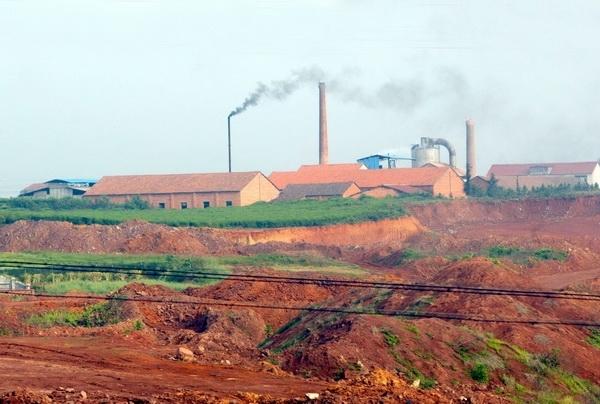

Highlights from the EO print edition, No. 584, Aug 27, 2012
New Housing Regulations Unlikely
News, page 3
~ Inspection groups sent out by China's State Council recently returned to Beijing after examining the implementation of housing policies and real estate restrictions in 16 provinces.
~ According to one unnamed source close to the inspection teams, as the teams discovered that purchase restrictions had been well implemented in general, they were recommending that there is no need to introduce any new policies. However, this is simply the opinion of the inspection teams, it's possible the State Council may have a different view.
~ One anonymous member of the inspection team told the EO that it's unlikely that any new regulations would be released, since the inspectors believe the current policy settings are effective enough to deal with the bounce in the real estate market since May.
~ Zhu Zhongyi (朱中一), vice president of the China Real Estate Industry Association (中国房地产业协会), believes that there won't be a large bounce in the real estate market due to the maintanence of existing central government policy, although there are a few isolated cases of rising house prices.
~ In a report put out by the Ministry of Land and Resources (国土资源部), only 29.6 percent of the 159,300 hectares of land that was originally planned to come onto the market in the first half of this year has been sold. According to some real estate developers, the lack of new land could lead to a shortage of new housing which could in turn lead to a jump in prices in a years time.
~ Getting the balance between property market restrictions and steady economic growth will be difficult.
Original article: [Chinese]

Shanxi's Search for Money
News, page 9
~ Shanxi, the coal-rich province a few hundred kilometers south west of Beijing, aim to attract 1,000 businesses to invest a total of one trillion yuan over the coming few years.
~ Taiyuan, the capital of the province, was given the task of attracting 100 companies and 100 billion yuan in investment.
~ However, Xiao Yihong (肖怡红), the head of Taiyuan City Federation of Industry and Commerce Economic Liaison Office (太原市工商业联合会经济联络处) told the EO that despite official boasts, most of the projects aren't new.
~ So far, a total of RMB 792 billion yuan had been committed to 561 projects.
~ Shanxi plans to take full advantage of its rich coal and mineral reserves. Officials are also trying to turn Shanxi's notorious coal wealth into capital that can be invested back into the province by improving the investment environment and encouraging more locals to invest in the province.
~ In an attempt to learn from Wenzhou's experience, Shanxi aims to encourage rich coal bosses to invest in local agriculture, manufacturing and tourism.
Original article: [Chinese]

Guangdong To Pilot Collateralizing Rural Residential Land Use Rights
Market, page 17
~ On Aug 14, Guangdong provincial governor Zhu Xiaodan (朱小丹) announced at a meeting on Guangdong financial work in rural areas that Guangdong will start a pilot program that will allow rural residents to use rural residential land use rights and rural land contract rights as collateral for bank loans. The program will be implemented in the cities of Meizhou (梅州) and Yunfu (云浮).
~ The meeting stressed that the basic idea of the pilot project is that, within the framework of national laws, rural households can collateralize rural residential land use rights to agencies authorized by the government. Then banks can offer loans to rural households and the authorized agency can provide a guarantee for this.
~ On Aug 21, Wang Weiming (王伟明), head of the Meizhou City Financial Work Bureau, told the EO that the government authorized agency has basically been decided to be the Rural Household Credit Information Center (农户征信中心).
~ Wang also told the EO that before the more detailed financial reform plan comes out, the major work will be construction of the Rural Household Credit Information Centre.
~ As for the pilot project of collateralizing rural residential land use rights for loans, Meizhou still has no specific plans besides the work on building the Rural Household Credit Information Center.
~ However, Ye Suisheng (叶穗生), vice director of the Guangdong Provincial Financial Work Office said that further details will be released within the next month.
Original article: [Chinese]
China's Securities Firms Experience Layoffs and Pay Cuts
Market, page 21
~After a very bad year for securities firms in 2011 - when one-third were operating at a loss – 2012 has remained an uphill struggle for the industry.
~According to data from the Securities Association of China, total profits earned by 112 securities firms in the first half of the year amounted to 22.6 billion yuan - a decline of 13 percent compared to the same period of last year.
~Many large securities firms have started to lay off staff and cut salaries.
~The Economic Observer learned from a person working for China International Capital Corporation Limited (CICC) that the company laid-off 30 people in the investment banking department earlier this year. Some reception positions may also face layoffs.
~The wave of layoffs and salary cuts started at the end of last year, and the affected securities firms have spread from small and medium-sized companies to large ones like CICC and Shenyin & Waiguo Securities (申银万国).
~ “The company didn’t officially announce there would be a pay cut, but due to the bad market situation, employees’ bonuses have become less,” said a worker at Sinolink Securities (国金证券).
Original article: [Chinese]

Fallout from the Asbestos Crisis
Corporation, Page 33
~ Great Wall Motors and Chery Motor Co. are being required by the Australian Competition & Consumer Commission (ACCC) to warn consumers that their engine gasket contains asbestos – a carcinogenic material. While observers in Australia are calling for a recall of those cars, some observers in China are criticizing Chinese car manufacturers for using looser safety standards at home than they do abroad.
~ Car parts made with asbestos are commonly seen in China since the material is much cheaper than alternatives. There are also no rules or laws prohibiting the use of asbestos.
~ This incident may slow Chinese car-manufactures' attempts to go global. It's expected that this "asbestos crisis" will force Chinese car manufacturers to raise their standards in production material. However, there's more pressure on law-makers to be stricter with asbestos use in cars.
Original article: [Chinese]

